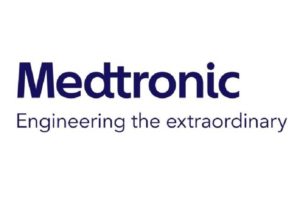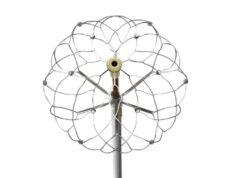
Medtronic have announced the 12-month findings that supported the Affera Mapping and Ablation system CE Mark, demonstrating that the Sphere-9 catheter can successfully treat patients with either paroxysmal or persistent atrial fibrillation (AF) using a variety of ablation lesion sets. The data was published in the JACC: Clinical Electrophysiology.
The Sphere-9 catheter is an all-in-one wide-area focal catheter with pulsed field ablation (PFA), radiofrequency (RF) and high density (HD) mapping capability. The Affera Mapping and Ablation System, which includes the Sphere-9 Catheter and Affera Mapping system, received CE mark approval in March 2023.
Treatment with the Sphere-9 catheter provided 85% one-year freedom from recurrence of atrial arrhythmias in patients receiving the PULSE3 waveform (the optimised, commercial Affera System pulsed field waveform). In paroxysmal and persistent AF patients who underwent a catheter ablation, 78% of both cohorts remained free from all atrial arrhythmias at the conclusion of the study. The study achieved its primary safety endpoint of 0.6%, including zero incidences of atrio-oesophageal fistula, coronary spasm, pulmonary vein stenosis, and phrenic nerve injury.
“With an increasing number of patients presenting with AF each year, clinicians need greater ability to customise treatment tailored to a patient’s specific needs,” said Vivek Y Reddy (Icahn School of Medicine, New York, USA), primary investigator of the study. “With the Affera Mapping and Ablation system, we can treat patients safely and efficiently, while also providing durability of lesions to help support long-term outcomes.”
The EU study to support the CE mark for the Affera Mapping and Ablation system was a prospective, single-arm, multicentre study performed in three European centres with 14 operators. The study enrolled 70 patients with paroxysmal AF and 108 patients with persistent AF. Waveform configurations were optimised as the study progressed, and efficacy and durability improved (PULSE1, PULSE2, and PULSE3). During the procedure from first to last energy application, ablation time was efficient, and ablations were performed in less than 22 minutes among a combination of RF and PF energy modalities. Re-mapping procedures were conducted at 96±43 days to assess lesion durability. Patients were monitored with 48-hour Holter monitoring at six and 12 months, and weekly trans-telephonic monitoring transmissions were collected for eight weeks and for monthly and symptomatic events thereafter.
“The meticulous design of the study including vigorous clinical follow up, thorough cardiac monitoring, and invasive remapping, and brings great confidence in the excellent safety, efficacy, and durability of the Sphere-9 catheter and Affera Mapping and Ablation system.” said Khaldoun Tarakji, vice president of Cardiac Ablation Solutions business, which is part of the Cardiovascular Portfolio at Medtronic. “Putting the patient at the centre of our innovation is our top priority, and I am looking forward to seeing how this first of its kind, dual-energy source, all-in-one Sphere-9 catheter can advance the care of arrhythmia patients globally.”
The Sphere-9 catheter, coupled with the Affera Prism-1 Mapping Software, quickly generates sophisticated electro-anatomical maps and allows the physician to deliver wide-area focal ablation lesions of RF or PF energy based on the patient and procedure needs, all with a single catheter. Given its size, the all-in-one catheter’s nitinol 9mm ablation tip has the potential to require fewer focal ablation lesion applications that may result in lower procedure times than standard irrigated ablation catheters. The intuitive mapping software enables an optimised user experience by delivering streamlined insights and feedback to support procedure performance.
AF is the most common atrial arrhythmia, and nearly 60 million people are affected worldwide and five million patients will be added every year by 2030. Atrial arrhythmias, such as AF, are associated with serious complications including heart failure, stroke and increased risk of death.









